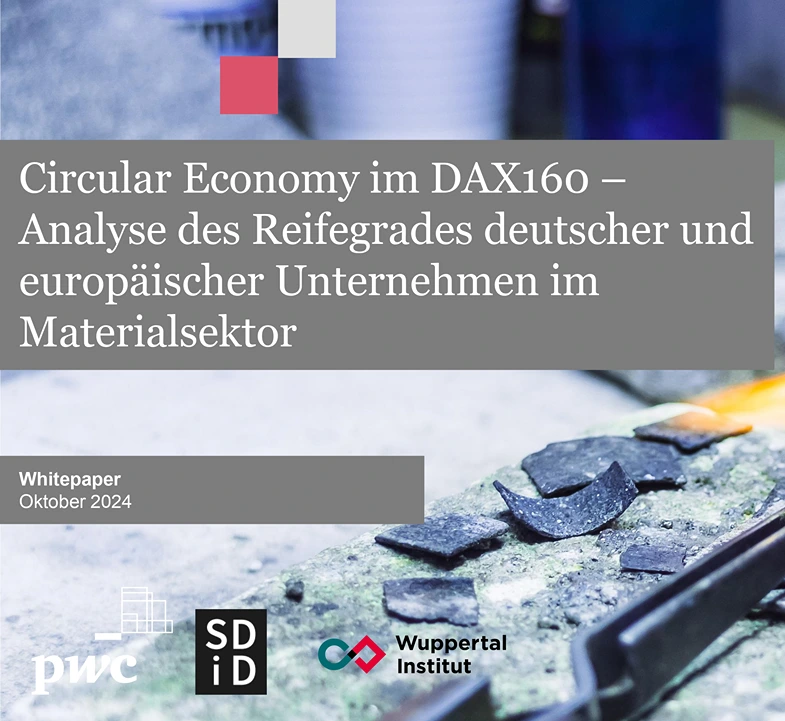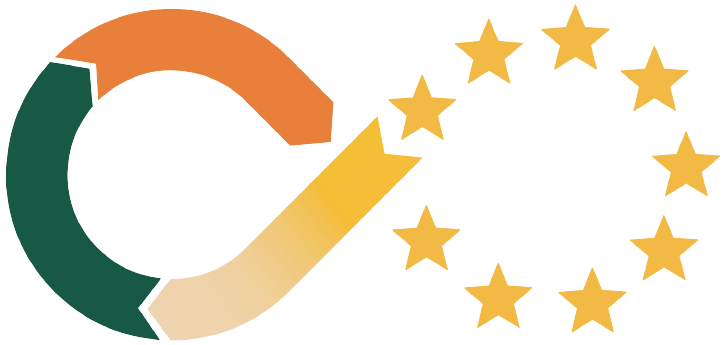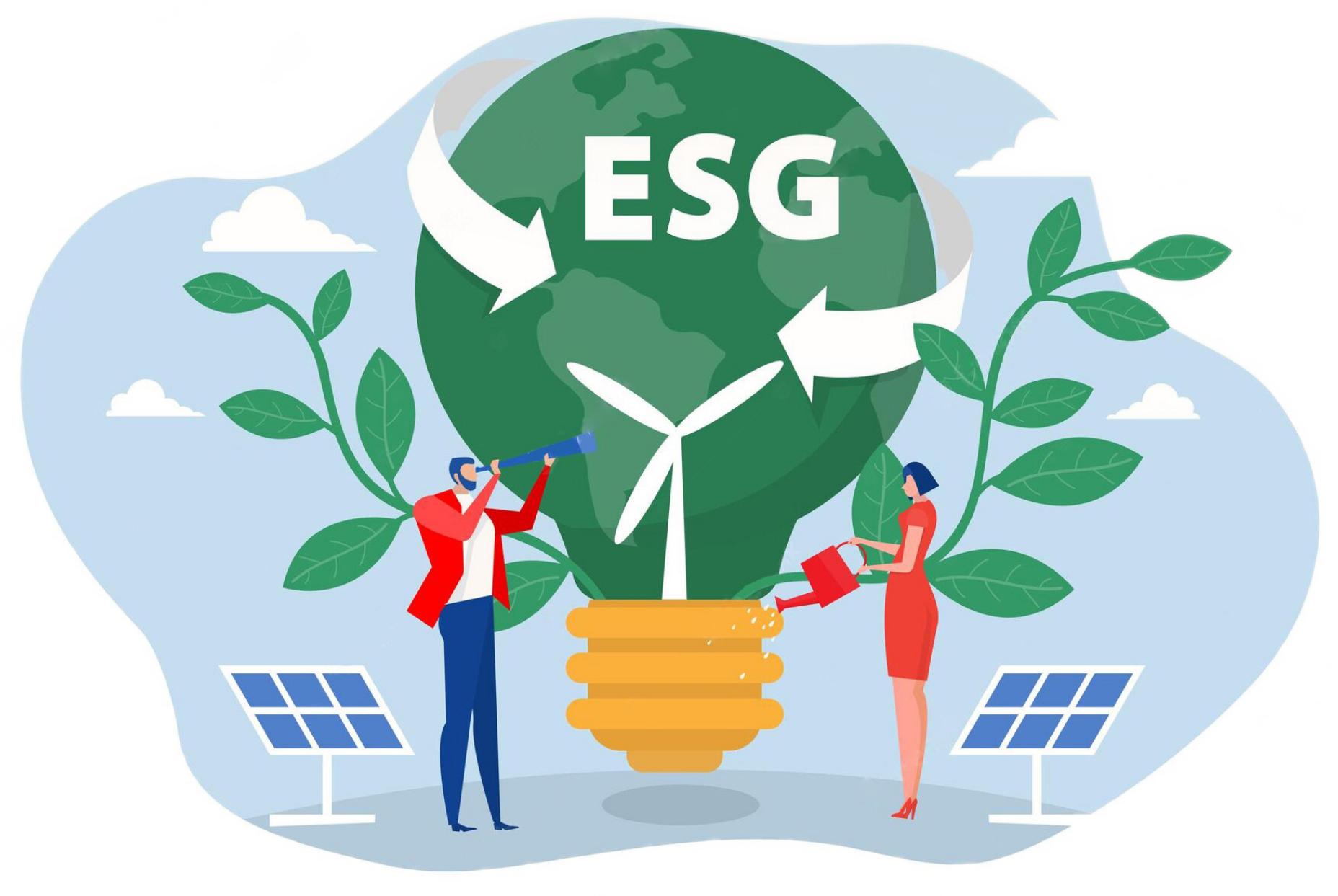Resources
Inspirational ESG insights
Read our latest reports and analysis documents
SDiD’s first DAX 160 Circular Economy Benchmark White Paper with PwC and Wuppertal Institut. (German language)
The materials sector significantly contributes to global greenhouse gas emissions, with more than half of all emissions linked to materials management. Implementing circular economy strategies will reduce resource consumption and CO2 emissions.
In our joint white paper with PwC Germany and the Wuppertal Institute, we highlight developments and challenges in the materials sector. SDiD provided the qualitative and quantitative research.


White paper: Circular Economy and the EU Taxonomy - August 2023
From vision to reality: Circular Economy is an essential part of the EU Taxonomy.
What does it mean for investors and companies?
Find out and download the SDiD white paper now:
SDiD data research supports investors and companies to mainstream Circular Economy and bring it to scale.
Study on ESG reporting in Europe
This survey, conducted for the fifth time, is an assessment of the current sustainability reporting status of 325 European companies included in 9 stock market indices.
In the past years, a number of new ESG-related rules and regulations came into force which, in a nutshell, will require companies to disclose more non-financial information.

Circular Economy reporting – a global study
In March 2020, the European Commission adopted the new circular economy action plan (CEAP). It is one of the seven building blocks of the European Green Deal, Europe's agenda for sustainable growth.
Furthermore, as part of the EU “Sustainable Finance Action Plan” the EU Taxonomy, which came into force in July 2020, aims at establishing a clear classification system to mobilise finance for sustainable growth. The EU Taxonomy includes “The Transition to a Circular Economy”.
This study, conducted for the first time in 2023, analyses the current reporting status of 443 companies included in 13 world’s leading stock market indices across five production oriented sectors: Consumer Discretionary, Consumer Staples, Industrials, Materials and Information Technology. SDiD is a Circular Economy data boutique and has one of the world’s most comprehensive set of Circular Economy data.


